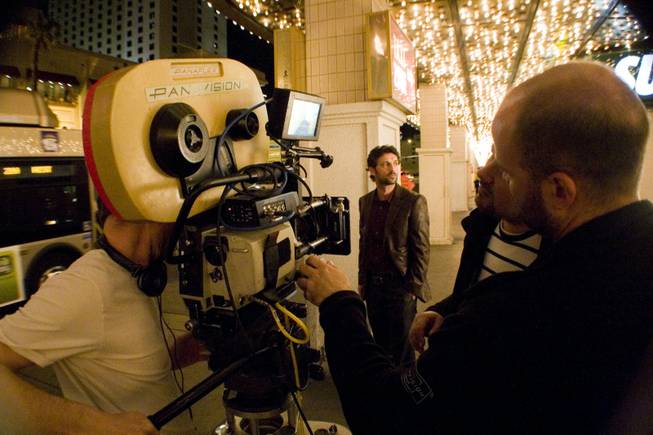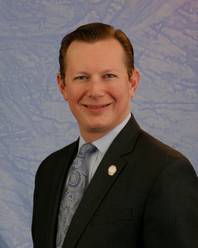
Seven Ft / Special to the Sun
Crews film a scene from the foreign film “The Gambler” at the Plaza in downtown Las Vegas.
Thursday, Feb. 21, 2013 | 6:10 p.m.

Senator Aaron Ford of the 11th (2013) Nevada Senatorial District.

Sen. Ben Kieckhefer
Sun archives
- Anger left in wake of film tax bill’s demise (6-11-2011)
- Assembly movie bill in danger of hitting cutting room floor (5-12-2011)
- What would lure Hollywood to Las Vegas? (4-20-2011)
- Successful Hollywood movies continue to sell Las Vegas (9-3-2010)
- No lingering 'Hangover' headache (12-19-2009)
- 'Hangover' brings new customers, campaign to Caesars (6-27-2009)
- Commission gives blessing for 80-acre movie compound (6-4-2009)
- Film industry gets top billing at economy planning summit (3-28-2002)
- Hollywood crews are busy filming at old LV cold storage warehouse (2-4-2000)
- Film industry strategy for LV questioned (8-1-1999)
A Senate Democratic bill to give tax credits to lure the film industry to Nevada has raised questions from Republicans that it might result in less revenue for public schools and local governments.
Sen. Aaron Ford's bill drew wide support from labor and economic development agencies, as he testified it would bring new jobs to the state from the movie and television industries.
But Sen. Ben Kieckhefer, R-Reno, said he was worried that it would affect the property taxes going to local government and “create a liability for local governments.”
SB165 would allow the state to offer up to $50 million a year in tax credits to movie and television producers who bring their units to Nevada for filming. Ford, D-Las Vegas, said the television program “Vegas” was filmed in New Mexico, which offers such a tax incentive.
He testified to the Senate Taxation Committee on Thursday that Louisiana was also attracting filmmakers with its tax credits.
Supporters of the bill said it would create new jobs, car rentals, food purchases and motel and hotel occupancy. The additional tax revenue would more than offset the money lost through tax credits.
If a production company did not use all of its tax credits, it could sell them to a Nevada firm. And that raised the concern of Senate Minority Leader Michael Roberson, R-Las Vegas, who questioned the transfer to another Nevada business such as a casino. Roberson, a co-sponsor of the bill, said he supports the concept but wanted more details.
He also referred to prior testimony of Steve Hill, director of the state Office of Economic Development who favored putting money in other development efforts.
Roberson said his impression from the Hill testimony is that states gave away too much for what they received in return.
Ford said he had talked with Hill who favored the concept, but Hill was concerned about the financial consequences. Ford said that states that offered a tax credit of 20 percent or below were not successful in their programs
Carole Villardo of the Nevada Taxpayers Association urged the committee to examine all the tax exemption bills that are being considered before acting on one for the movie industry.
The tax credit would not be available for filming a sporting event, political advertisement or pornography.
A second bill by the Democratic leadership to provide tax incentives to businesses that hire unemployed workers got a more favorable reaction.
Sen. Debbie Smith, D-Sparks, said the basic concept is to give employers a break on their payroll tax if they hire a worker who has been jobless for six months or more.
“We need to be innovative to bring down the 10.2 percent unemployment,” she told the committee.
SB172 would allow a business to avoid paying the modified business tax on the salary of the unemployed worker for a year and then pay only 50 percent of the tax for another three years.
In his message to the Legislature, Gov. Brian Sandoval proposed a $25 million tax break on the payroll tax.
Smith said the bill does not allow an employer to fire a worker and then hire a replacement to avoid the tax. Under questioning, she said she would have to look at how seasonal workers would be treated.
The bill gained support from builders, labor and other employer groups.
The committee did not take action on the bills.

Join the Discussion:
Check this out for a full explanation of our conversion to the LiveFyre commenting system and instructions on how to sign up for an account.
Full comments policy